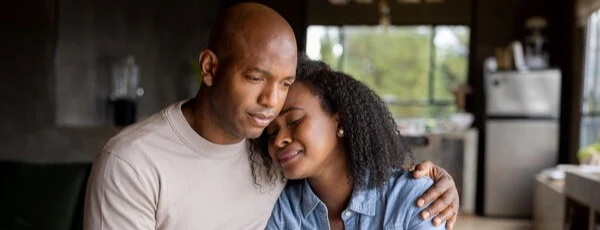Is a Credit Card Secured or Unsecured Debt?

UpdatedJun 24, 2025
- Most credit cards are unsecured, meaning you’d qualify based on your credit standing.
- Secured credit cards require a security deposit.
- Secured credit cards are a great option for someone who needs to build or rebuild their credit.
Table of Contents
Credit cards can be either secured or unsecured debt. Both can be useful for building and using credit. Understanding the differences between unsecured and secured credit cards can help you use credit efficiently, build a strong credit history, and avoid needing debt relief in the future.
What Is the Difference Between Secured and Unsecured Debts?
Secured debt requires collateral. Collateral is something of value that you own that a lender can take if you don’t pay your debt.
For example, car loans are secured debt. The collateral is the car. If you don’t make your loan payments, the lender can come and take the car from you. If you default on the loan, the lender takes the car back and sells it, hoping they can recover their losses.
Other types of secured debt include home mortgages and pawnshop loans.
Unsecured debt doesn’t require any type of collateral. Instead, you can borrow money based on your creditworthiness. That includes factors like how you’ve handled credit accounts in the past, and how much income and debt you have.
Most personal loans and credit cards are unsecured debt. Since there's no collateral, there’s nothing for the lender to take and sell if you don’t make your payments.
What happens if you default? They might sue you for credit card debt and win a judgment against you, but in most cases, they can’t take your home or car.
When there's no collateral, the lender is taking a bigger risk.That’s why unsecured debts tend to be more expensive than secured debts. There’s no financial safety net for the lender, so they charge more.
A Credit Card Is Usually an Unsecured Debt
Most credit cards are unsecured. The credit card issuer looks at your credit history and credit score and decides whether to issue you a credit line.
Your credit card includes a credit limit. If you don’t have a credit history or your credit score is low, your card may have a modest limit, such as $300. This is a way for the creditor to limit losses if you fail to pay back your charges.
As you make on-time payments, a few things are likely to happen:
Your credit score should improve. Payment history is the biggest factor affecting your score.
The credit card company might raise your limit, because you’ve demonstrated that you can use your card responsibly.
You might qualify for a better interest rate if your credit usage shows you handle debt responsibly.
Unsecured credit is based on trust. As you prove you're able to repay reliably, you should be able to qualify for more credit and better credit terms.
A Credit Card Is Sometimes Secured Debt
The vast majority of credit cards are unsecured, but there are also many secured cards available.
A secured card means you have to offer collateral to get one. In this case, the collateral is money deposited with the credit card issuer.
The money isn't upfront payment against your charges (that’s how a prepaid debit card works). Your deposit is a safety net for the credit card issuer. If you use the card, you’ll still have to pay the bill each month. But if you fail to repay your debt, they keep your deposit.
For many secured credit cards, your credit limit will be equal to the amount of your security deposit. So paying a $200 security deposit gives you a $200 credit limit. Some cards give a higher limit than the deposit amount.
Why would you put down a deposit to get a credit card? If you have a limited credit history, or you’ve had credit problems in the past, you might not qualify for a traditional credit card. A secured card may be the best way for you to get credit.
There are a few ways to get your money back. One is to close the account. Assuming all charges are paid off, your deposit will be returned to you.
Another is to use the card responsibly for a period of time. Some issuers automatically convert your account to an unsecured credit card and return your deposit after six to 12 months.
If that doesn’t happen automatically, you can apply for an unsecured credit card yourself after six to 12 months and then shut down the secured account. If you’ve established a good payment record with the secured card, you may now be able to qualify for an unsecured card.
Quick Comparison of Secured vs. Unsecured Credit Cards
When looking at secured vs. unsecured credit cards, it’s important to understand some differences.
| Credit Card Features | Secured credit card | Unsecured credit card |
|---|---|---|
| Deposit needed? | Yes | No |
| Reports to credit bureaus? | Usually | Yes |
| Credit score needed | Poor or none | Fair to Excellent |
| Bankruptcy treatment | Card issuer can keep the security deposit if don’t pay | Eligible to be discharged in bankruptcy |
Many unsecured credit cards require a minimum credit score to qualify. If you’ve recently experienced bankruptcy or another financial setback, you might not qualify for an unsecured credit card. Also, if you don’t have a credit history because you’re younger or if you recently moved to the U.S. from another country, you might not be able to get an unsecured credit card right away.
Secured cards generally have much lower credit requirements. Because you’re offering a cash deposit, you can usually get a secured card even if you have poor or no credit.
When Is it a Good Idea to Get a Secured Credit Card?
A secured credit card could make sense if you’re trying to establish or rebuild your credit history. You can use one to learn how to handle credit responsibly (or prove that you already know how). Secured credit cards can be perfect as a first or a getting-back-on-your-financial-feet credit card. By their nature, they’re a stepping stone to unsecured credit.
Before you apply, get to know the available options. People with no credit or bad credit are often targeted for excessively expensive financial products. Here’s what to look for:
Secured credit card fees
Many credit cards have annual fees, often called maintenance or membership fees. However, most unsecured cards don’t, so it pays to shop around. Search online for “best-secured credit cards” and check out the options.
Example: Capital One has a secured credit card with no annual maintenance or program fee.
Secured credit card interest rate
Most credit cards have high interest rates, and the rates on a secured card might be on the high end. It doesn’t have to matter. If you’re using your card in the best way possible, you’ll never pay interest.
Here’s how.
The vast majority of credit cards come with a grace period, or a certain number of days from the end of the billing cycle to your payment due date. If you pay off your charges by your payment due date, you won’t pay interest. If you manage to do this, no matter what kind of credit card you have, you’ll pay no interest.
Example: U.S. Bank offers a secured credit card with a 24- to 30-day grace period for new purchases.
Secured credit card rewards
Just because you’re using a secured credit card doesn’t mean you can’t enjoy a few credit card rewards. Several secured cards offer rewards.
Note that if you carry a balance, the interest you pay will wipe out some or all of the value of the rewards you earn. But if you’re planning to pay off your charges every month and avoid paying interest, a rewards card could be a smart way to make your credit card work for you instead of the other way around.
Example: The Discover it secured credit card offers unlimited cash back on your purchases.
Using a Secured Credit Card to Get Better Credit
When you’re choosing between a secured and an unsecured credit card, keep in mind that the right choice for you might change over time.
If your credit history isn’t good enough for you to qualify for an unsecured card, a secured card may be the right choice just so you can get a credit card. You may not like putting up a security deposit, but think of that as temporary.
If you use that card responsibly, keep your balances low, and pay all your bills on time, a secured card can help you improve your credit score. That should eventually allow you to qualify for an unsecured card.
Remember, whether it’s an unsecured or a secured credit card, terms such as fees, interest rates, and rewards differ from card to card. Compare terms for the type of card you need so you can get a good deal.
Debt relief stats and trends
We looked at a sample of data from Freedom Debt Relief of people seeking a debt relief program during May 2025. The data uncovers various trends and statistics about people seeking debt help.
Credit Card Usage by Age Group
No matter your age, navigating debt can be daunting. These insights into the credit profiles of debt relief seekers shed light on common financial struggles and paths to recovery.
Here's a snapshot of credit behaviors for May 2025 by age groups among debt relief seekers:
| Age group | Number of open credit cards | Average (total) Balance | Average monthly payment |
|---|---|---|---|
| 18-25 | 3 | $8,864 | $274 |
| 26-35 | 5 | $12,615 | $380 |
| 35-50 | 6 | $16,479 | $431 |
| 51-65 | 8 | $17,240 | $528 |
| Over 65 | 8 | $17,811 | $498 |
| All | 7 | $15,142 | $424 |
Whether you're starting your financial journey or planning for retirement, these insights can empower you to make informed decisions and work towards a more secure financial future
Student loan debt – average debt by selected states.
According to the 2023 Federal Reserve Survey of Consumer Finances (SCF) the average student debt for those with a balance was $46,980. The percentage of families with student debt was 22%. (Note: It used 2022 data).
Student loan debt among those seeking debt relief is prevalent. In May 2025, 27% of the debt relief seekers had student debt. The average student debt balance (for those with student debt) was $48,703.
Here is a quick look at the top five states by average student debt balance.
| State | Percent with student loans | Average Balance for those with student loans | Average monthly payment |
|---|---|---|---|
| District of Columbia | 34 | $71,987 | $203 |
| Georgia | 29 | $59,907 | $183 |
| Mississippi | 28 | $55,347 | $145 |
| Alaska | 22 | $54,555 | $104 |
| Maryland | 31 | $54,495 | $142 |
The statistics are based on all debt relief seekers with a student loan balance over $0.
Student debt is an important part of many households' financial picture. When you examine your finances, consider your total debt and your monthly payments.
Support for a Brighter Future
No matter your age, FICO score, or debt level, seeking debt relief can provide the support you need. Take control of your financial future by taking the first step today.
Show source
Author Information

Written by
Richard Barrington
Richard Barrington has over 20 years of experience in the investment management business and has been a financial writer for 15 years. Barrington has appeared on Fox Business News and NPR, and has been quoted by the Wall Street Journal, the New York Times, USA Today, CNBC and many other publications. Prior to beginning his investment career Barrington graduated magna cum laude from St. John Fisher College with a BA in Communications in 1983. In 1991, he earned the Chartered Financial Analyst (CFA) designation from the Association of Investment Management and Research (now the "CFA Institute").
How can I tell if a credit card is secured or unsecured?
You may see this mentioned in the advertising literature for a credit card. If not, you can check the cardholder agreement. If you are required to put up a deposit, it’s a secured card.
Do secured credit cards report to credit agencies?
Generally yes, but it’s not guaranteed. Check with the issuer of any card you’re considering to see which credit bureaus they report to and how often.
Are secured or unsecured credit cards a better deal?
Generally speaking, unsecured credit cards are likely to be less expensive. However, if you have a limited or poor credit record, a secured card might be the right choice for you. In time, using that card may allow you to qualify for better terms with an unsecured card.



